A Wining Cost Estimate
That Helps You To Win More Plumbing Construction Projects

Businesses must comprehend commercial plumbing cost estimation. Here’s a guide to help. Cost factors include materials cost, labor cost, and project size. Larger projects cost more due to more manpower. Other factors are project type, location, system complexity, facility age, and regulations. To save cash, plan ahead. Hire a trustworthy plumber and conduct maintenance. Use quality materials and avoid shortcuts. Maintenance will detect minor issues before they become huge expenses.
Wouldn’t it be nice if money flowed through pipes as water does? No more talking about cost factors then!
To understand the factors affecting commercial plumbing costs as a solution, delve into the size and complexity of the plumbing system, type of plumbing fixtures and equipment, location and accessibility of plumbing system, and local codes and regulations. Explore each of these sub-sections for insight into how they impact commercial plumbing cost estimation.
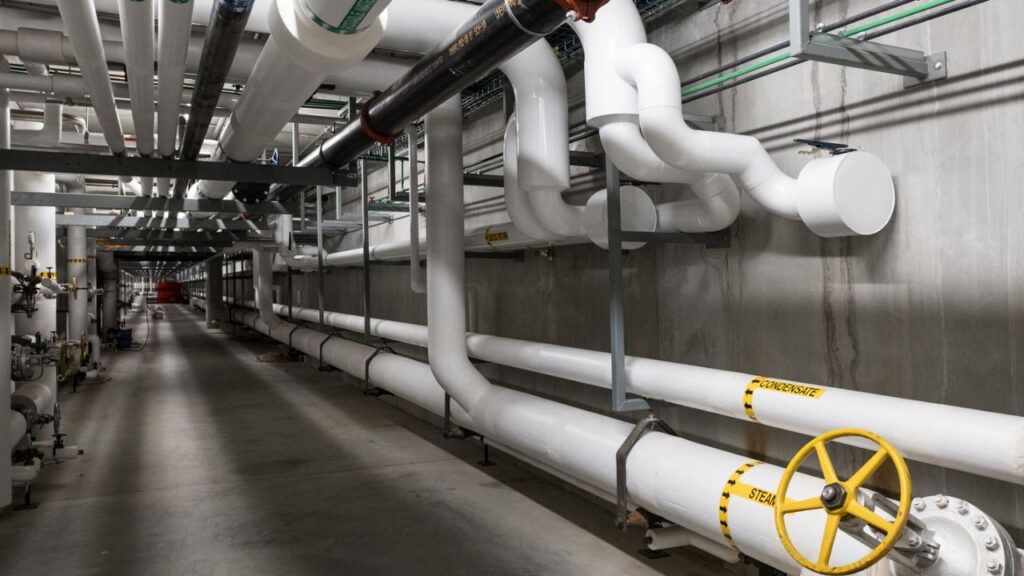
Plumbing systems come in a range of sizes and complexity, which affects the cost of commercial plumbing services. Bigger and more complex systems need more materials and labor. For instance, larger buildings with many floors need extensive piping and extra access challenges. The type of plumbing system also affects costs, like high-pressure water pipes for industrial use.
Special equipment is often needed for large-scale projects, which can raise the cost due to specific tools and experienced technicians. Abiding by building codes and regulations adds complexity and cost too.
Pro Tip: Consult a licensed plumbing professional when planning commercial projects. This way, you can assess your current system and get an accurate cost estimate.
Plumbing Fixtures and Equipment are essential for commercial plumbing projects. Spaces have diverse requirements, so each needs its own plumbing fixtures and equipment. See the table below for costs and functions.
Plumbing Fixture | Cost Range ($) | Function |
|---|---|---|
Toilet | 150 – 600 | For disposing of human waste. |
Faucet | 50 – 2000 | Controls the flow of water. |
Sink | 100 – 800 | For washing hands or small objects. |
Customized fixtures can cost more than traditional ones. The finish or material used can also affect cost. Energy-efficient plumbing fixtures can help save on water usage, up to 30%! (source: EPA) Accessibility is key for commercial plumbing costs – unless you’re a superhero plumber!
The position and getting to of a business plumbing framework are critical elements influencing the general expense. Plumbing frameworks behind dividers, underground or in tight spaces can make extra work costs. Also, difficult to reach territories may require uncommon gear or licenses, additionally expanding costs.
Reaching can differ incredibly dependent on the location of a structure. On the off chance that a structure is in an urban or profoundly populated region, it very well may be increasingly hard to get to because of restricted space or road terminations. Likewise, structures situated in remote territories may have constrained admittance to water and sewage lines making interesting difficulties.
It’s significant to take note of that extra elements, for example, the age of the structure and past support endeavors may add to
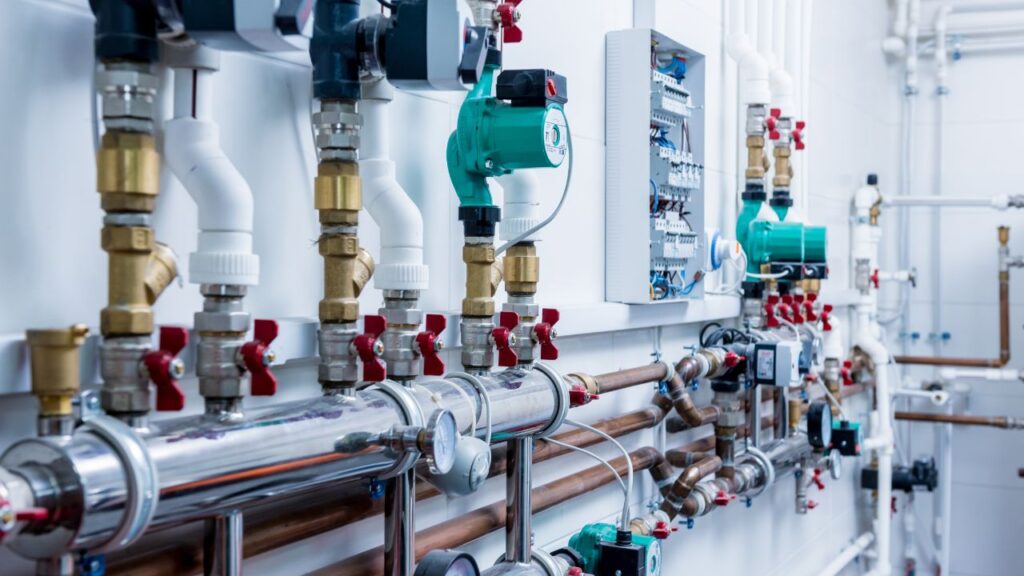
getting to or absence of. These issues could influence funnels and other plumbing parts that are more enthusiastically to perceive, no doubt causing unforeseen issues.
As per HomeAdvisor’s Cost Guide, commercial plumbing administrations can go from $65-$150 every hour with an average national cost of $120 every hour. With regards to local codes and guidelines, commercial plumbers need to follow the rules, since the main thing more terrible than a stopped up deplete is a weighty fine.
Local authorities’ regulations and codes can affect commercial plumbing costs a lot. They might need certain equipment, materials, installation techniques and safety protocols. Ignoring these codes can lead to fines, delays, and even legal issues. Therefore, installing systems following these regulations is very important for people’s safety and to avoid penalties.
Moreover, local codes and regulations can also affect the timeline of a project. Permits may be necessary before work starts, meaning more time and money spent.
Just in Houston, non-compliance with plumbing regulations led to more than $600K fines between 2017 and 2020 (Houston Chronicle). Businesses must be careful to follow all local codes and regulations during commercial plumbing projects. Calculating the cost of commercial plumbing is risky – you never know which pipe will break your budget.
We help contractors find new customers with high-converting websites and locally targeted niche-specific lead-generation programs. You’ll never need to worry about running out of work again! We focus on quality over quantity with our leads for contractors.
To estimate commercial plumbing costs with precision, you must consider the cost of labor, materials, equipment, and tools. In this section on estimating commercial plumbing costs, we will explore the solution to determining the costs involved in a plumbing project. Keep reading to learn more about the sub-sections: cost of labor, cost of materials, and cost of equipment and tools.
Commercial entities must pay for a skilled workforce when it comes to plumbing. Installing, maintaining and repairing plumbing systems requires specialised skills and certifications.
Factors like location, complexity of work, duration, qualifications, experience and emergency services all affect labour costs. Plumbers may charge hourly or per project. Each job is unique and an estimate is needed.
Labour costs are a benchmark for evaluating efficiency in plumbing projects. Teams with higher-level expertise will have better outcomes. However, the budget for separate contractors vs full-service companies creates alternate options for large-scale projects.
Qualified plumbers typically earn $20-$50 per hour, with peak seasons in mid-winter. According to Forbes Magazine 2021 survey, US plumbers & utility workmen make an estimated $45000-$65000 annually, depending on region and education/training.
The expenditure on plumbing materials for a building is essential for calculating plumbing costs. To calculate, create a table with columns such as material name, quantity and price. Examples of such materials include pipes, fittings, valves, water heaters and pumps.
Remember that some rare materials may need research to estimate their cost. These materials, like metals and specialized tools, may not be found in hardware stores.
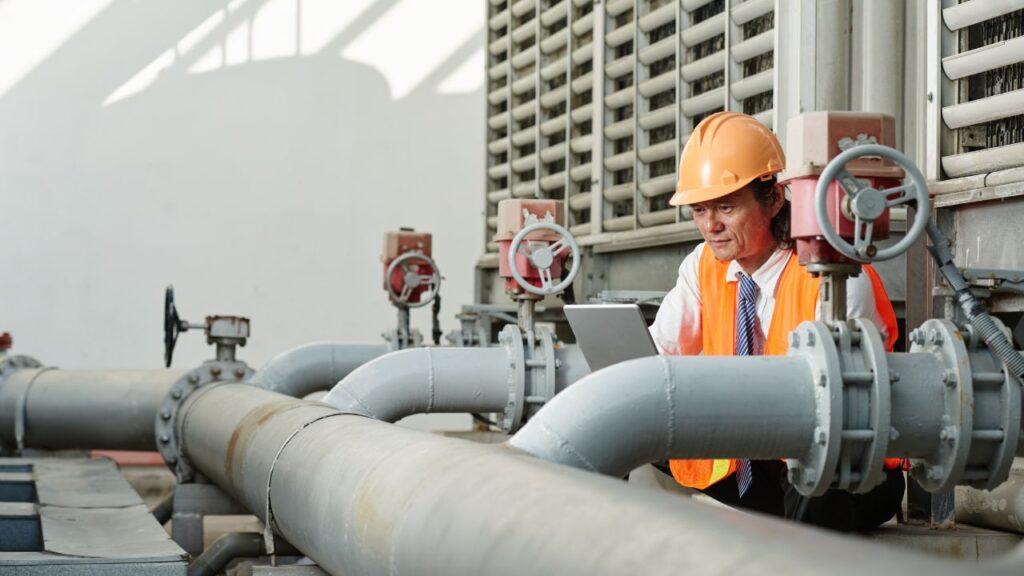
Don’t forget to account for permit fees, labor charges and equipment rental in your budget. Doing this will give you a comprehensive idea of the total expenses.
Be sure to consider all budget components to prevent overspending or leaving out parts that could cause insufficient funding. Ask around – a friend or neighbor might have a plunger you can borrow for the day!
Estimating the cost of a plumbing project for commercial buildings requires accounting for equipment and tools. This includes special tools specific to the job.
Check out the table below for costs and descriptions:
Equipment/Tool | Cost (USD) |
Saws & Cutters | 50-300 |
Pipe Wrenches & Pliers | 30-200 |
Metal Files & Deburring Tools | 25-100 |
You may need to consider extra stuff, like power drills, threading machines, and vehicles for heavy material transportation. These costs pile up quickly. So, you must consider them when budgeting.
A friend once experienced a mistake in estimating the cost of necessary equipment for a plumbing project. This led to higher fees than expected for both him and his client. This story shows how important it is to allot enough funds for tools and equipment. That way, the project will be efficient and profitable.

To get a cost estimate for common types of commercial plumbing projects, you need to understand the details of each project. Plumbing installation and replacement costs, repair and maintenance costs, and emergency plumbing costs are included in this section. This guide will highlight each of these sub-sections with a brief introduction.
It’s essential to consider the various types of commercial plumbing projects when it comes to installation and replacement costs. Here are some common ones:
Keep in mind that each project is unique. Get advice from a professional plumber to get an estimation of the costs based on things like materials needed, size of the space, type of project, and labour required.
Did you know that for centuries, plumbing wasn’t taken seriously? Before experts became a norm in the 19th century, people usually fixed their plumbing issues by themselves, using makeshift methods. The Industrial Revolution caused rapid urbanisation which brought about new sanitation systems due to disease outbreaks. This was the start of professionals like John Snow bringing in solutions to protect communities from spreadable diseases through sewers – and this still defines what it means for plumbing to be done well.
So, don’t forget to budget for repair and maintenance costs – plumbing problems never take a break!
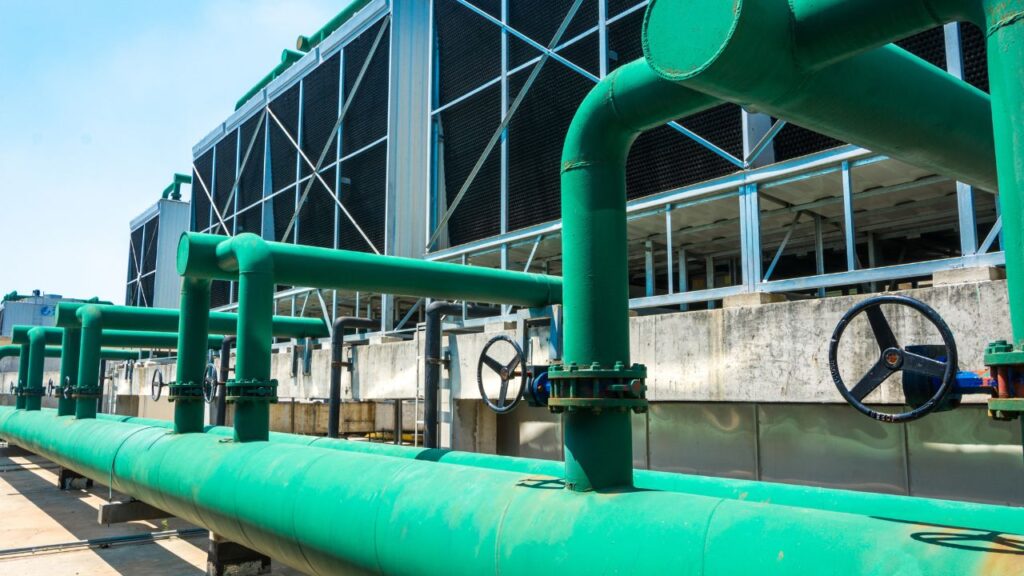
Repair and maintenance expenses are the costs you pay to keep a commercial plumbing system working. 6 areas where costs may be incurred are:
Regular inspections are important to lower costs. Ignoring minor problems can lead to huge relocation costs. 10% of water in commercial buildings is lost due to leaking pipes (source: Applied Management Group Inc). Don’t ignore plumbing issues or you’ll face a hefty bill!
Maximize your plumbing construction business’s potential with our competitive financing options

Unexpected plumbing issues can be expensive! Repair costs depend on the complexity of the problem. Emergency plumbing is usually pricier than regular repairs. This is because technicians need to hurry and work outside normal hours or on holidays. The cost of emergency plumbing varies, but it can range from hundreds to thousands of dollars.
For routine plumbing tasks, like replacing showerheads or upgrading kitchen sinks, you can expect to pay less. Prices depend on the plumber’s experience level, region, and reputation. So, it’s wise to get multiple quotes before choosing a service provider.
HomeAdvisor found that the average call-out fee for an emergency repair is $150-$500. Plus, extra fees for non-standard hours.
Emergency plumbing costs can add up quickly. Invest in a reliable plumber to prevent water damage and save money in the long run. Leave the plumbing to the pros – your wallet will thank you!
To ensure quality work and avoid costly repairs, finding a reliable commercial plumber is crucial while taking care of plumbing needs. In order to successfully hire a professional plumber for your business, this section, “Hiring a Professional Commercial Plumber,” with topics “How to Find a Reliable Commercial Plumber,” “Questions to Ask Before Hiring a Commercial Plumber,” and “Importance of Getting Multiple Estimates” will provide you with all the necessary tools and advice.
Finding a dependable commercial plumber is essential. Check credentials, experience, availability, service guarantees and insurance coverage. Get references and ask for transparent pricing.
Pick someone who can guarantee timely work. Also, check for emergency services 24*7. Look up directories with ratings and reviews.
Choose a plumbing expert registered and licensed with regulatory authorities. Prioritize those with cooperative customer support and technicians on standby.
Verify reliability with accreditation agencies like the BBB. Ask family and friends who’ve hired plumbers previously for advice.
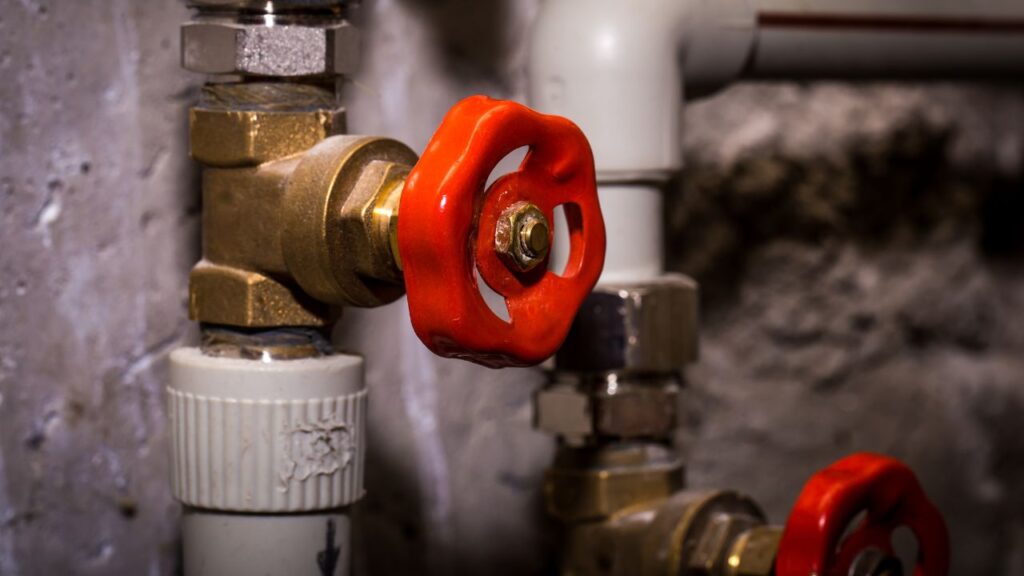
Why do it yourself when you can hire a professional? Plus, have time to watch Netflix!
Are you hiring a commercial plumber? It’s vital to ask the right questions. Here are 5 must-ask queries:
Plus, check if they give upfront estimates, guarantees and use high-quality parts. Do your research online or ask other local businesses for recommendations. Have options to avoid a hefty bill and leaky pipe.
Seeking multiple estimates from professional plumbers is the best way to ensure top-notch commercial plumbing services. You can compare prices and services, identify the most reliable contractor, learn more about their experience and references, and set clear project requirements.
Plus, multiple estimates help you avoid overcharging and poor quality workmanship. It’s essential to pick a commercial plumber with competitive pricing and high-quality services that match your needs. Don’t rush into hiring the first plumber you see.
Do some research and check their licenses, certifications, insurance coverage, and customer reviews. Ask questions about their experience with similar plumbing problems. Make sure they have the staff and resources to handle the job effectively.
Getting multiple estimates is the key to long-term satisfaction with your commercial plumbing work. But, always expect the unexpected – like a hidden sewage line or a wedding ring down the toilet!
Making precise cost estimates for commercial plumbing projects involves looking at various factors. Follow these tips to help ensure accuracy.
Several factors can affect commercial plumbing cost estimation, including the type and size of the building, the plumbing materials and fixtures required, the complexity of the plumbing system, and the level of customization needed.
Commercial plumbing cost estimates can vary in accuracy based on the detail and specificity of the information provided. More detailed information will lead to a more accurate estimate.
Commercial plumbing cost estimates typically include material costs, labor costs, and any applicable permit fees. They may also include an allowance for contingencies, which are unforeseen costs that can arise during the construction process.
Changes can be made to the initial estimate if the scope of work or materials required change during the construction process. These changes may impact the final cost of the project and should be discussed with the contractor beforehand.
Choosing the right contractor for your commercial plumbing project involves researching and vetting potential candidates, reviewing their past work and customer reviews, and asking for references. It is important to choose a licensed and insured contractor with experience in commercial plumbing projects.
To minimize commercial plumbing costs, you can choose cost-effective materials and fixtures, simplify the plumbing system wherever possible, and communicate clearly with your contractor to avoid any unnecessary work or changes. It is also important to plan the project carefully and avoid making changes once work has begun.
Here I am going to share some steps to get your plumbing construction cost estimate report.
You can send us your plan on info@estimatorflorida.com
Before starting your project, we send you a quote for your service. That quote will have detailed information about your project. Here you will get information about the size, difficulty, complexity and bid date when determining pricing.
We do plumbing construction cost estimating and prepare a detailed report for your project. At last, you finalize the report and finish the project.
561-530-2845
info@estimatorflorida.com
Address
5245 Wiles Rd Apt 3-102 St. Pete Beach, FL 33073 United States
561-530-2845
info@estimatorflorida.com
Address
5245 Wiles Rd Apt 3-102 St. Pete Beach, FL 33073 United States
All copyright © Reserved | Designed By V Marketing Media | Disclaimer
IMPORTANT: Make sure the email and cell phone number you enter are correct. We will email and text you a link to get started.
By clicking “I Agree” above you give Estimate Florida Consultin express written consent to deliver or cause to be delivered calls and messages to you by email, telephone, pre-recorded message, autodialer, and text. Message and data rates may apply. You are able to opt-out at any time. You can text STOP to cancel future text messages.